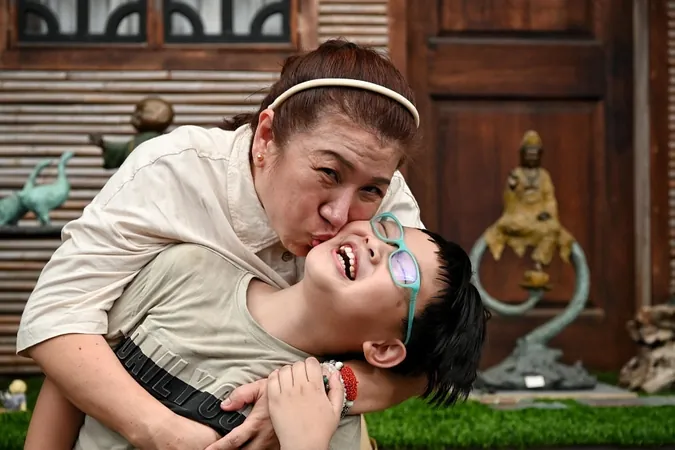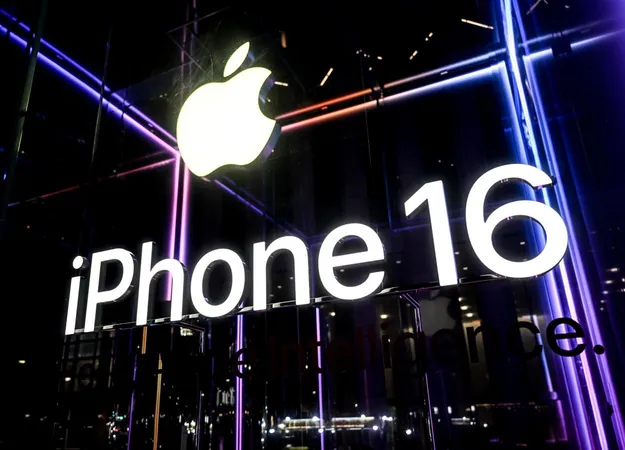
The Rise of Motherhood Beyond 50: A Shifting Paradigm
2024-09-18
In a remarkable shift in societal norms and biology, an increasing number of women aged 50 and over are embracing motherhood in Singapore. In 2023 alone, 19 women in this age bracket gave birth, with three of them over 55—a significant jump from previous decades.
The Immigration and Checkpoints Authority’s annual report astonishingly reveals that between 1989 and 2009, only six women aged 50 or older delivered babies. Yet, between 2010 and 2019, this figure skyrocketed to 33 women giving birth to 41 children, highlighting a burgeoning trend. Notably, within this group, a 58-year-old woman made headlines for giving birth to twins in 2016, making her Singapore’s oldest known mother.
Among those celebrated in this new wave of late motherhood is the acclaimed actress and getai singer Liu Lingling, who became a mother at the age of 50 after undergoing in-vitro fertilization (IVF). She welcomed her son, Caleb, in 2013, demonstrating her determination and the possibilities modern medicine offers.
Liu’s story has been an inspiration to many, but it also serves as a poignant reminder of the health challenges older mothers face. In a revealing 2022 television interview, she disclosed managing high blood pressure, high cholesterol, and high blood sugar during her pregnancy, conditions that could heighten the risks associated with late pregnancies. Dr. Christopher Chong, an obstetrician and gynecologist, emphasizes that common risks include those of miscarriage, premature birth, and various complications during delivery.
The statistics are sobering. As women age, their fertility naturally declines, with only about 1% of women over 50 able to conceive without fertility treatments. Dr. Chong articulates these challenges succinctly: “For older mothers, there is an increased risk of miscarriage, foetal abnormalities, and intra-uterine growth restriction, which can severely impact fetal health.”
The cultural landscape is also shifting. Prominent figures such as singer Janet Jackson, who gave birth to her son Eissa at 50, and supermodel Naomi Campbell, who welcomed her son at age 53, are redefining motherhood norms. Even actress Cameron Diaz joined this list by welcoming her second child, a baby boy named Cardinal, at age 51 in March 2024.
As society grapples with issues of fertility, science, and age, it raises an intriguing question: Are we ready to accept a reality where age is merely a number on a mother’s journey? The growing acceptance and successful stories of older mothers could potentially pave the way for more women to choose motherhood later in life, though the medical community urges each woman to consider both the possibilities and the risks involved.
This modern trend underscores a critical dialogue about maternal health and family planning, inviting reflection on what it means to build a family in today’s world. While late pregnancies can challenge traditional views, they also illuminate the advancements in reproductive technology and women’s empowerment to make choices about their own bodies and futures.




 Brasil (PT)
Brasil (PT)
 Canada (EN)
Canada (EN)
 Chile (ES)
Chile (ES)
 España (ES)
España (ES)
 France (FR)
France (FR)
 Hong Kong (EN)
Hong Kong (EN)
 Italia (IT)
Italia (IT)
 日本 (JA)
日本 (JA)
 Magyarország (HU)
Magyarország (HU)
 Norge (NO)
Norge (NO)
 Polska (PL)
Polska (PL)
 Schweiz (DE)
Schweiz (DE)
 Singapore (EN)
Singapore (EN)
 Sverige (SV)
Sverige (SV)
 Suomi (FI)
Suomi (FI)
 Türkiye (TR)
Türkiye (TR)